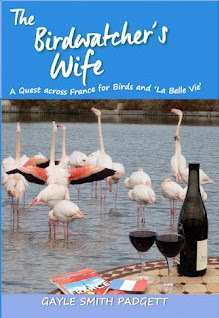Last month, the state of California put into effect a law originally signed in 2004 prohibiting the manufacture and sale of foie gras. Many chefs, as you could imagine, are quite up in arms about it and have been fighting to get the ban repealed. Meanwhile most have taken the French delicacy off their menus while others are ignoring the ban, hoping that regulatory agencies are too busy to chase after them and impose the $1000 fine. Still others are using loopholes to work around the restriction, by offering toast and chutney ''with complimentary foie gras'' or promoting ''BYOF,'' meaning
Bring Your Own Foie. If you supply the foie gras, they'll cook it for
free and charge you for the accompaniments.
California restaurateurs had until midnight July 1 to legally sell foie
gras to customers. As the deadline approached, many restaurants saw an
increase in sales from customers looking for their last legal
taste. The Los Angeles Times reported hungry foodies embarking on "foie gras crawls" in the weeks before the ban took effect. This is the only current ban of its kind in the United States, although Chicago had a ban for a year before it was reversed.
To capitalize on the controversy--making lemonade from lemons--Jean-Claude Corda, the clever owner of the popular Bistrot des Alpilles in St. Remy de Provence is offering a free foie gras first course to any customer who shows a valid California ID. The dish, which normally sells for 14€, is served with typical accompaniments such as grilled bread and chutney. Jean-Claude buys the product from Maison Masse, a highly regarded producer in the Perigord/Dordogne region of France.
''California sees itself as a trendsetter,''
Jean-Claude says, ''and we wish to do the same in our own way by inviting Californians to discover, for
free, a typically French meal, from a famous company. Maison Masse, makers of
foie gras since generations, works closely with producers who love their work. And since the 'gastronomic meal of the French,'
with its rituals and presentations, was registered in 2010 on UNESCO's World Heritage List of cultural treasures, we want to keep this traditional French dish
in the American mentality.''
So why the controversy? At issue is the way in which foie gras--the term
refers to the fattened liver of ducks and geese and the dishes made
from it--is produced: the animals are force fed by tube to enlarge their
livers and produce a silky texture (the practice is called gavage).
As early as 2500 BC, the ancient Egyptians were fattening birds through
forced overfeeding so it's hardly anything new. Still, that doesn't
make it right, according to the animal-rights group PETA, which has posted a list
of the five reasons to ban foie gras with several graphic photos.
Detractors say these and other provocative photos circulating online come
from unregulated farms in Europe....not the U.S.
Up until now there have been just three producers of fresh foie gras in the U.S.: Sonoma Artisan Foie Gras in Northern California, Hudson Valley Foie Gras in New York and La Belle Farm, also in New York. (Plus, a few in Canada who export to the U.S.) I'm told that Sonoma Artisan Foie Gras stopped production on July 1st but their website says their farm aims to be humane and that "ducks are never
individually caged and roam free range for most of their lives." The
company publishes a list of industry issues here, illustrating their practices and position.
Back in 2009, the Village Voice did an extensive story about how foie gras is made at Hudson Valley. In summing up her findings, the reporter wrote: ''Personally, I would avoid foie gras from the producers in France and Canada that use individual cages. The fact that some industrial farms elsewhere are making foie gras in
inhumane ways doesn't mean that all foie gras production is inhumane.
You can buy humanely raised chicken, or you can buy chicken that's had a
nasty, brutal life. The same goes for foie gras. If I had seen with my own eyes that Hudson Valley produced foie gras
by abusing ducks, this article would have turned out very differently.
But that just wasn't the case.'' (You can read the story here.)
Hudson Valley (and presumably the other
U.S. producers) employ animal-welfare consultants to ensure their ducks are
treated, fed and slaughtered humanely.
But back to the present. The Financial Times reports that Laurel Pine, the owner of Mirepoix USA which sells foie gras and other luxury foods, moved last year from California's Napa Valley to Reno, Nevada, in anticipation of
the ban. Pine says she's planning to set up outposts along the border where
Californians can legally buy foie gras...and planning to
establish a courier service to deliver the product. ''In the meantime, Californian's are buying foie gras
directly from me in Reno,'' she told me by email.
Whenever I think of foie gras, I think of my old pal Michael Ginor, the co-founder/co-owner of Hudson Valley Foie Gras, the biggest foie gras producer in the country. So I rang Michael up yesterday and found him surprisingly upbeat. ''We're actually having our
best year yet,'' he said. ''Because of all the PR which foie gras has
received....sales are higher as awareness is heightened. And chefs in
California are still finding 'creative' ways to offer foie gras to their
customers so sales there have not greatly diminished.''
Another old friend at the foie gras forefront is Ariane Daguin; she owns D'Artagnan, the New Jersey-based purveyor of duck, foie gras, wild game and caviar, and sells to many of the top chefs in the U.S. (Ariane is also French foodie royalty, the eighth generation of a hotel/restaurant/butcher/charcutier family. Her dad, Andre, had two Michelin stars at the Hôtel de France in Auch, Gascony, and later headed the French Hotel and Restaurant Union (UMIH); he was also considered a foie gras master. Her brother Arnaud, also a chef, has a Michelin star at his guesthouse and restaurant Hegia in Hasparren, southeast of Biarritz. Her sister Anne had the bakery Le Petit Duc in St. Remy until selling it a month or two ago.) So if anyone has a strong opinion about all this, I knew it would be Ariane. 'We've never sold as much foie gras in California as we have since the ban,'' she tells me. ''Please let the farmers do
their jobs and raise ducks for foie gras the right way, humanely and
without stress, as they've been doing for thousands of years. Didn't we learn anything from Prohibition?''
Ariane also told me about a pending lawsuit against the State of California as well as a major lobbying effort to
push a bill in Washington that would make it impossible to interfere with the interstate commerce of agricultural products. Meanwhile “moving outside of California is not my ideal solution,” Guillermo Gonzalez of Sonoma Foie Gras told Food Arts. He's
a native of El Salvador who moved to California and opened the company in 1986; he and his wife have raised two children in Sonoma. “After 26 years,
we have made our lives here,'' he continues. We want to stay. It all depends on the
political activity now taking place. We are in a mode of wait and see.” (Read the Food Arts story here.)
Apparently more than a dozen countries, including Britain, Germany, Israel and
South Africa, have essentially outlawed the production (but not the sale or consumption) of foie gras. For now, however, France continues to view it as a traditional delicacy worth savoring in many forms. So if you love it...and you come from California...and you find yourself in St. Remy...there's a silky slab with your name on it, with compliments--and complements--at the Bistrot des Alpilles!
Brasserie Restaurant Le Bistrot des Alpilles
15 Blvd. Mirabeau
13210 St. Remy de Provence
+33 (0)4 90 92 09 17
lebistrotdesalpilles.com
lba1@wanadoo.fr
Photos: The foie gras, Jean-Claude Corda and the Bistrot des Alpilles.






























































.jpg)












Brava Julie. Another great blog. We love foie gras, as you probably know! Jackie
ReplyDeleteJulie, thank you so much for this informative posting, bringing new perspectives. While in Cannes last Christmas, I finished up a cooking course called ' Fois Gras dans toutes ses etats' , it was a delightful experience... Maya
ReplyDeleteI too enjoy foie gras - thanks for your post.
ReplyDeleteActually I don't love foie gras, it is too rich.....but now that it is banned I may have to take my Californian driving license along to Bistrot des Alpilles, my favourite restaurant in the region, any excuse to go there will do and this is as good as any!
ReplyDeleteThanks for the article. Always ordered my foie gras and duck rillettes from California and had it shipped to Florida. Now they offer no foie gras and only porc rillettes. So sad...Miss having these wonderful treats!
ReplyDeleteThis is wonderful. I might have to change my drivers license to California now! The farms that I have seen in Bordeaux are lovely places where the ducks and geese run free...okay they have a very slow waddle. But they sure look happier than the chickens and turkeys I've seen at the big poultry farms in the states. I never thought I would eat fois gras, let alone love it. Now I am one of the converted. Thanks for a great article.
ReplyDeleteHi Julie, Many thanks for your promotion of my forth coming cooking classes in Les Arcs sur Argens. Anyone who signs up and says they saw the ad on The Provence Post receives a $200 immediate discount! And we will do a class with Fois Gras! Karen Mitcham-Stoeckley
ReplyDeleteGreat article, Julie! I don't eat any meat....so this doesn't impact me....but I do believe our legislators in California could apply themselves to more urgent tasks. Decaying infrastructure... as a not so tiny example!
ReplyDeleteDear Julie,
ReplyDeleteThanks for another wonderful and informative posting...and particular thanks to your smart friend for her wry comment concerning the Prohibition era.
My own take on the Foie Gras furor is to consider that it would be nice if even 1/100th of the outrage directed at foie gras producers and purveyors (a remarkably small and easy target) was directed towards the production of grotesquely battery-farmed chickens. Of course, doing so would result in Americans not being able to assume that entire chickens never cost more than 1.30 per pound....and we wouldn't want to change something that directly affects US and OUR wallet, would we?
Well, I wouldn't be the first to notice that a depressingly large percentage of Americans are inevitably eager to propose a ban on someone else's foie-gras (or someone else's abortion or drug-addiction or chosen-partner...it seems to always be something that some small group of OTHER folks do, eat, or say. In short, all too many of these recent bans don't in the least affect the lives of the folks who so ferociously promote them.
Perhaps I'm being unfair in ascribing this attitude so particularly to Americans....but the alternative is regarding it as a generalized human trait, which would indeed be even more depressing.
thanks again for the fine article,
David Terry
www.davidterryart.com
I know, and have been doing business with the Sonoma people.....They are nice and their ducks were treated humanely....Their Foie Gras was superb as well as their magret.
ReplyDeleteBeing an ex Californian.....I feel badly for them...... And the restaurants that tried to emulate France......Maryanne xo
As a part time resident in Provence and part time in Northern California and a restaurateur, there has been a much bigger decline in sale of foie gras than what you imply in your post. My heart goes out to Guillermo Gonzalez of Sonoma Foie Gras for the loss of his business. The problem is that no one including the chefs joined Guillermo in fighting the proposed ban when it was being debated in the California assembly. Now it faces almost impossible uphill battle to overcome. PETA is a very strong political force in California. And the politicians say that the law doesn't outlaw the sale of foie gras just the sale of "inhumanely" produced foie gras which no one has figured out how to do to conform to the CA law.
ReplyDeleteThis is hilarious. I am a devout foie gras enthusiast AND a Californian -- I only wish I'd planned my holidays this year to St-Remy de Provence! (Though even this devotée might not have ordered it in the heat of summer ;)
ReplyDeleteI've never like foie gras. Can I substitute chocolate instead? ;-)
ReplyDeletexo
Kit
Hmm, I wish more American restaurants would promote we are the Land of the Free Foie Gros. In fact, if there are NY restaurants want to offer it and promote it, call me and I'll be happy to do it!
ReplyDeleteFree Foie Gras is a great idea any day, and thank you to Jean-Claude for reminding us that banning foie gros sales in California restaurants, makes our country look ridiculous.
In 2011 - Six million California residents had incomes below the federal poverty line of $22,113 for a family of four. Nearly 1 in 5 California residents lacked health insurance in 2010. They can't figure our how to feed children here - and they are worried about Foie Gros?
Nathana Josephs Communications, NYC